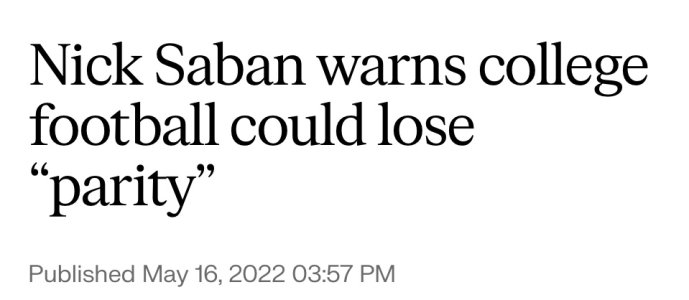drylo
Well-Known Member
- Joined
- Nov 20, 2014
- Messages
- 3,677
- Likes
- 20,592
You want to talk about market equilibrium… why was nobody ever able to start a viable football league where these super valuable college kids could go make a bunch of money playing football instead of being exploited by universities?No. Grocery stores don't sell television rights for billions of dollars. Organizations that collude to force college football as "extracurricular/not a job" while they profit hugely, is the entire point of the antitrust cases.
Why would I follow your red herring when you choose to blatantly ignore the pertinent points that are on the table. (For the record, if high schooler and middle schoolers wanted to sue for % of gate receipts I'd sit back and thoughtfully consider the arguments made, just as I've done with the NCAA. But I think we can both agree that them not getting a cut of the gate is "at their expense" since "zero" is less than "whatever their cuts would be". )
Think about that for a second, and then get back to on “at the expense of the athletes”…




